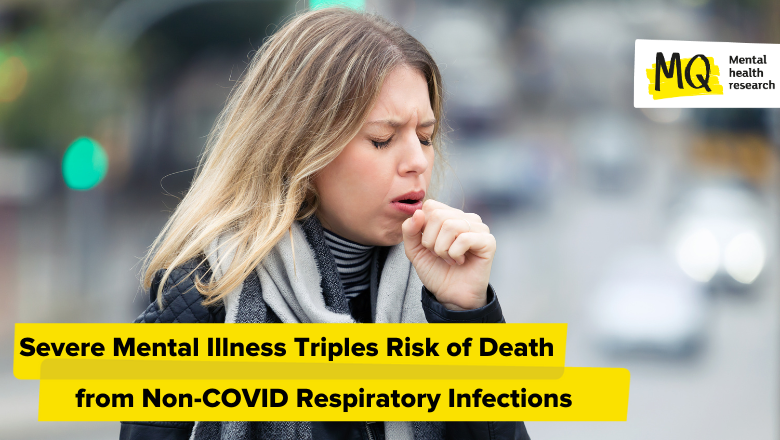New research from the Institute of Psychiatry, Psychology & Neuroscience (IoPPN) at King’s College London has found that people with severe mental illness (SMI) are more than three times as likely to die from non-COVID respiratory infections compared to the general population.
The research, published in eClinicalMedicine, suggests that people with SMI should be prioritised for preventative strategies including flu and pneumococcal vaccines.
While there has been extensive research conducted that established that COVID-19 posed a significantly greater risk of death to people with SMI, comparatively little has been focused on other specific types of infection.
Researchers in this study conducted a systematic review of 29 studies to establish risk. A meta-analysis found that, compared to the general population, people with SMI were more than twice as likely to die from infectious diseases, and more than three times as likely to die from non-COVID respiratory infections. The risk of dying from pneumonia specifically was more than four times higher.
Professor Ioannis Bakolis, Professor of Public Mental Health and Statistics at King’s IoPPN and the study’s senior author said, “While society has made great strides in the last two decades and has become much more accepting of mental illness, we have some way to go to recognising the wider risks that those living with a severe mental illness face.
“Our study highlights the significantly increased risk of mortality associated with infectious disease that people with SMI still face. What’s important now is that, having identified the risk, public health policy recognises and adapts to provide better protections for those in need.”
The researchers go on to highlight several potential reasons as to why people with SMI face an increased risk.
Amy Ronaldson, an MQ Research Fellow at King’s IoPPN, and the study’s first author said, “The nature of SMI means that it’s difficult to pinpoint a single reason as to why this group is at increased risk. What’s most likely is that it is a number of combined factors.
“People with SMI already experience significant health inequalities, like reduced access to healthcare and stigma within the care system, that can dissuade people from approaching their doctor for help in the first place. This, combined with physical health factors, and the potential changes in the immune system that have been shown to be a feature of mental illness, creates a potent situation in which the effects of infectious disease are felt much more strongly by someone managing SMI.”
This study was possible thanks to support by the MQ Mental Health Research Fellowship, and with funding from the National Institute for Health Research (NIHR) Biomedical Research Centre (BRC).


